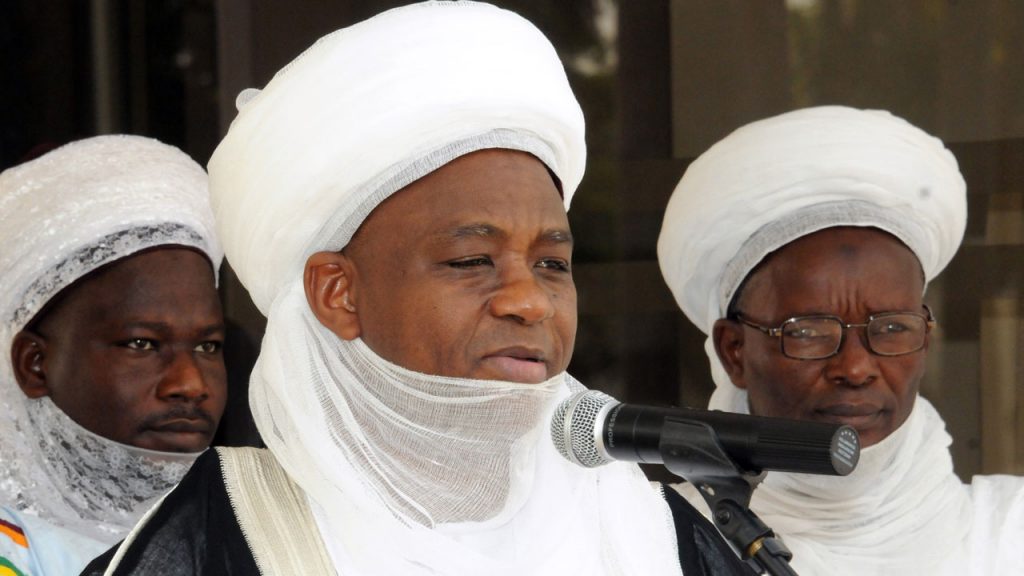The Nigerian Supreme Council for Islamic Affairs (NSCIA) has asked United States President Donald Trump to withdraw his recent comment describing Nigeria as a “disgraced country,” warning that such language could inflame tensions and undermine national stability.
The demand followed an Expanded General Purpose Committee (EGPC) meeting chaired by the NSCIA President-General, the Sultan of Sokoto, Alhaji Muhammad Sa’ad Abubakar III, held on Sunday at the National Mosque, Abuja.
Briefing journalists after the meeting, NSCIA Secretary-General, Prof. Ishaq Oloyede, said the Council was alarmed that some “Islamophobic and unpatriotic Nigerians” had misled foreign governments with claims suggesting Nigeria was experiencing a genocide against Christians.
Oloyede stressed that Nigeria’s insecurity affects citizens across religious and ethnic lines, noting that both Muslims and Christians continue to be victims of terrorism, banditry, communal clashes, and criminality driven by climate stress, failed governance, and the proliferation of arms.
He said: “When the U.S. President, Mr. Donald Trump, labelled our country ‘disgraced,’ every right-thinking Nigerian was concerned.
“An ally determined to help a sovereign country ‘completely wipe out Islamic terrorists committing horrible atrocities’ would offer assistance and collaboration — not use such language to describe a country it claims to support.”
The Council warned that the context surrounding the U.S. designation of Nigeria as a “Country of Particular Concern” suggests it could serve as a pretext for destabilisation, despite other countries like China, Saudi Arabia, and Myanmar receiving the same designation.
“We urge President Trump to retract branding Nigeria a ‘disgraced country’ and instead assist the nation with credible intelligence, logistics, and human-capacity development to overcome insecurity,” it added.
According to the NSCIA, Nigeria’s re-designation by Washington was not based on new evidence but on lobbying efforts by foreign evangelical networks, separatist groups, and local actors pursuing political or material advantage.
The Council further cautioned that amplifying a false genocide narrative could inflame religious hostility and destabilise the country.
“We affirm that there is no Christian genocide in Nigeria. There is no Muslim genocide in Nigeria. There is no religious intolerance in Nigeria. The Nigerian tragedy is rooted in poverty, climate change, bad governance over time, and armed criminals who kill indiscriminately,” the Council stated.
It appealed for unity, telling Christians: “You are not our enemies; you are our compatriots, colleagues, and neighbours. We have both, over a long period, been victims of a failed security architecture and a brutal insurgency that targets us all.”
The NSCIA commended Femi Falana (SAN), Femi Fani-Kayode, Reno Omokri, and Anambra State Governor Charles Chukwuma Soludo for publicly rejecting genocide claims and resisting attempts to divide the nation.
Oloyede added that those promoting false narratives of genocide “are neither patriotic nor Godly,” warning that such rhetoric could plunge Nigeria into conflicts similar to those that devastated Iraq, Libya, and Syria.

